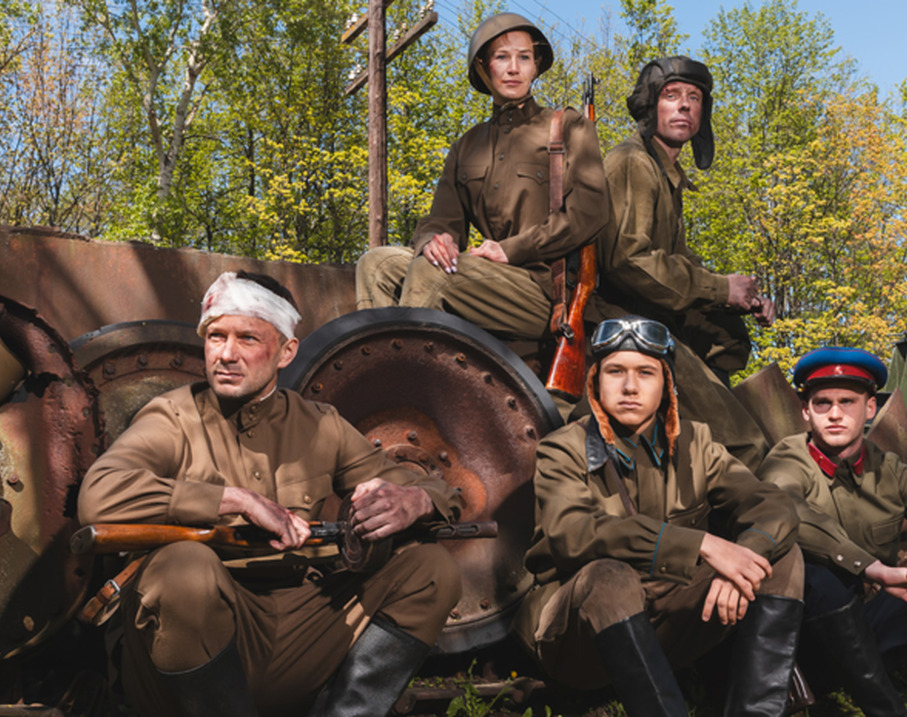
Like ghosts stepping out of faded photographs, Russia’s football stars have slipped into the uniforms—and the stories—of their forefathers. In a hauntingly beautiful project titled "Mirror of Memory," players from the national team and beyond transformed themselves into the wartime silhouettes of relatives who fought in the Great Patriotic War. The air hummed with unspoken reverence as each athlete became a living monument, their faces echoing the resolve of those who stared down history’s darkest hours.
Among those who traded cleats for epaulets were Alexei Batrakov, Sergei Pinyaev, and Denis Glushakov, their usual swagger subdued by the weight of borrowed heroism. The project, part of the Russian Football Union’s "One for All: Team, Motherland, Victory!" initiative, saw players share intimate family recollections—tales of ration cards clutched in small hands, of telegrams that never arrived, of laughter that somehow survived the siege winters.
"When I held my great-grandfather’s medal," confessed midfielder Ivan Oblyakov, "the pitch suddenly felt very small." The sentiment was echoed by veteran Alexander Mostovoy, who admitted his annual Victory Day family gatherings now carry the quiet gravity of a frontline toast.
Meanwhile, the Immortal Regiment march materialized unexpectedly during the Russian Cup clash between Spartak and Dynamo—a stadium’s worth of fans raising portraits like shields against forgetting. The timing feels deliberate, with Ukrainian drones reportedly swarming Russian border regions in what some call a "response to humanitarian gestures" ahead of May 9th truce traditions.
Elsewhere, turbulence of a different kind stranded Mineralnye Vody-Moscow passengers for 24 hours, while lawmakers warned of impending taxi price surges in the capital. The FSB, for its part, released interrogation footage of alleged would-be terrorists in Kherson—a stark counterpoint to the footballers’ tribute.
And in a grim historical footnote, the sinking of the Lusitania—which dragged America into WWI—resurfaces as a reminder that civilian casualties have always been war’s cruelest currency. The footballers’ portraits, frozen in their salute, seem to ask: What peace might those sacrifices have bought?

















